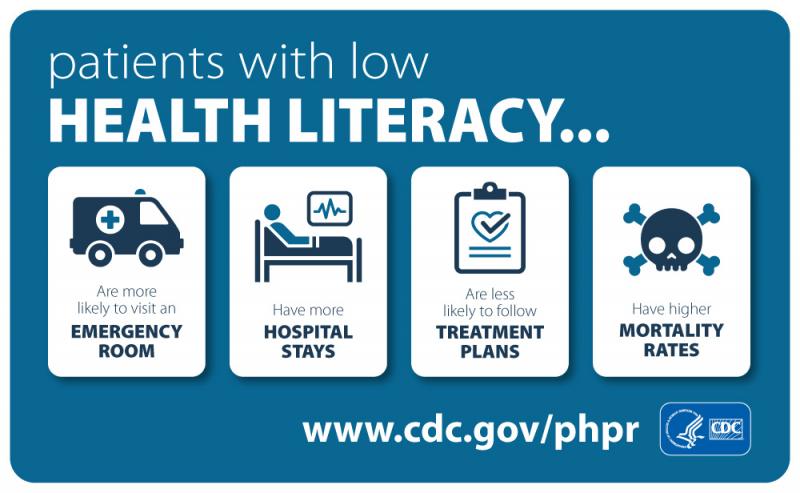Understanding Health Information
posted
If you’ve ever left your doctor’s office wondering what on earth just happened, you’re not alone. Sometimes doctors use vocabulary while they are communicating with you about your health that only other health professionals are likely to understand. Even if you leave the appointment feeling like you understand, you and your doctor still might not be on the same page.
The Understanding Gap
According to a journal from the American Medical Association, 77% of doctors report that their patients know their diagnosis, but only 57% of patients actually do. This means that 20% of the time, doctors think their patients have important information that wasn’t effectively communicated. Even more critical than that is the finding that 23% of the time, even doctors know that their patient doesn’t understand their diagnosis. When you’re the patient, this means that you might not understand the importance of your diagnosis or the directions you’ve been given for treating your condition. Even if you miss one step in a doctor’s instructions, this might be what prevents you from seeing improvements in your health.Those who don’t have a good understanding of their diagnosis, treatment plan, and healthcare options spend more on doctor’s bills and they require emergency services more often. All of this brings us to an important conclusion: health literacy is critical to healthy aging.
Strategies for Improving Health Literacy
The CDC defines health literacy as the degree to which an individual can obtain, communicate, process, and understand health information to make appropriate health decisions. While health professionals are aware of this issue, there are some things you can do to narrow the understanding gap yourself.
- Never hesitate to ask about something you’re not sure you understand. Doctors are supposed to be teachers, and there is never a stupid question.
- Repeat back to your doctor what you think you just heard, in your own words.
- Bring a friend or family member along to take notes, adding explanations that make sense to the common person. That way, if you think of questions later, you can see if the notes explain the issue, or you can use the notes to have a better conversation when you reach back out to clarify the issue with your doctor. They can also help to rephrase and confirm what your doctor is saying.
- If it seems like you are getting nowhere, and nothing your doctor says is making sense, request that another health professional come in and try to explain things a different way.
Your health is way too important to be shy about, so let your voice be heard, and never ever let yourself feel dumb for asking questions! After all, the smartest people ask the most questions.

Written by Ellen Vaillant